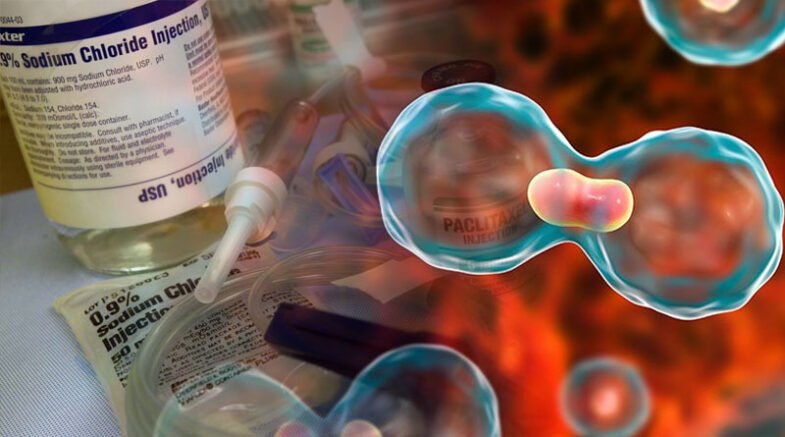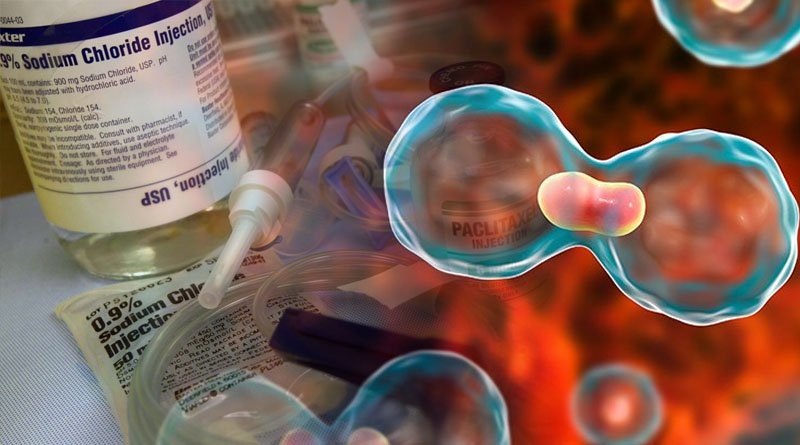There are currently a lot of unavailable cancer treatments in the nation, and one of the main problems with the lack of vital cancer treatments is the delay in LCs.

World Cancer Day 2023 is being observed worldwide today, but officials and oncologists warned on Friday that there is a severe lack of several crucial chemotherapy drugs and medications used to treat cancers such as leukaemia, lymphoma, neuroblastoma, sarcoma, and Wilms’ tumour, the most common type of kidney cancer in children, as well as breast and prostate cancers.
In addition to chemotherapy drugs and anti-cancer drugs, many other necessary medications, such as those for the treatment of psychiatric disorders, psychiatric illnesses, tuberculosis, and immunosuppressants, antivirals for the prevention of various viral illnesses, anesthetics to make patients unconscious for surgeries, blood-thinning agents, and many other life-saving medications, are not available to the health facilities for the severely ill patients.
Yes, there are currently a lot of unavailable cancer treatments in the nation, and one of the main problems with the lack of vital cancer treatments is the delay in LCs.
Due to LC restrictions, anticancer medications are imported in ready-to-use form and are challenging to import “, says Dr. Faisal Sultan, CEO of Shaukat Khanum Memorial Cancer Hospital and Research Center (SKMCH&RC), Lahore, the largest cancer treatment centre in the nation.
According to him, suppliers are having trouble maintaining the necessary inventories of biological products, chemotherapy drugs, and anticancer medications as their stock is running low. “Due to the lack of raw materials, the production of anti-cancer medications in the nation is also hampered (due to import issues).
According to the PPMA, they only have a few days’ worth of raw material inventories on hand. Dr. Faisal Sultan added that the impact of these import restrictions will result in severe shortages of crucial chemotherapy medications in the coming months.
The other basic, necessary medications used for minor illnesses and as supportive therapies for cancer patients will also be impacted by this. Once the market runs out of legitimate sources, shortages could further result in overpricing (via illegal channels), the author continued.
Several other essential medicines, such as antibiotics, antipsychotic medications, anaesthetics, and others, were also not readily available in the market for the treatment of ill patients, according to officials of leading private health facilities in Islamabad. They said they were having difficulty obtaining essential anticancer medicines for the treatment of breast cancer, which is the most common cancer among women.
Salwa Ahsan, a renowned pharmacist and head of the pharmacy at a prestigious private health facility in Islamabad, said, “We have written a letter to the Drug Regulatory Authority of Pakistan (DRAP), pointing out that approximately 21 essential and life-saving medicines are not available in the market, and regrettably, alternate brands of these medicines are also available in the market.”
She claimed that the most significant medications that were unavailable to them were “Epirubicin, Doxorubicin, and BCG Oncotice,” which are anticancer drugs used to treat bladder cancer, breast cancer, leukemia, lymphoma, neuroblastoma, and Wilms’ tumour (the most common type of kidney cancer in children).
She argued that in addition to having a difficult time getting cancer medications, they were also having a hard time getting treatment for TB, which is the leading cause of death in Pakistan, antipsychotic medications, necessary anesthetics, pain relievers, and antiviral medications.
“We have asked the DRAP to expedite the registration of alternative brands of several necessary medications so that doctors and healthcare facilities can access the alternative treatments. “The majority of essential medications are currently unavailable in other brands,” she continued.
Other doctors and pharmacists at prestigious public and private hospitals reported that they were also experiencing a dearth of necessary medications, such as those used to treat psychiatric illnesses, prevent cardiovascular disease, treat strokes, and treat cancer.
They claimed that Diphtheria Antitoxin, which is used to treat diphtheria, was another significant medication that was unavailable in the nation. They claimed that it was a life-saving medication that was not currently available, particularly in the capital, Islamabad.
According to one of the top pain management experts in the city, “essential medications like buprenorphine and morphine are also not available at most of the health facilities, which are used to treat extreme pain caused by cancer.”
Drug Regulatory Authority of Pakistan (DRAP) officials stated that they were aware of the shortage of some essential medications and that a committee of the DRAP had made several recommendations to the authorities in order to guarantee the continuous supply of medications to the populace.
“We are working around the clock to make sure that the public has access to essential medications. “The State Bank of Pakistan and the Ministry of Finance are handling the LC issue, and we are working to make alternative arrangements for the import of ready-to-use medical supplies ” according to a DRAP representative.
